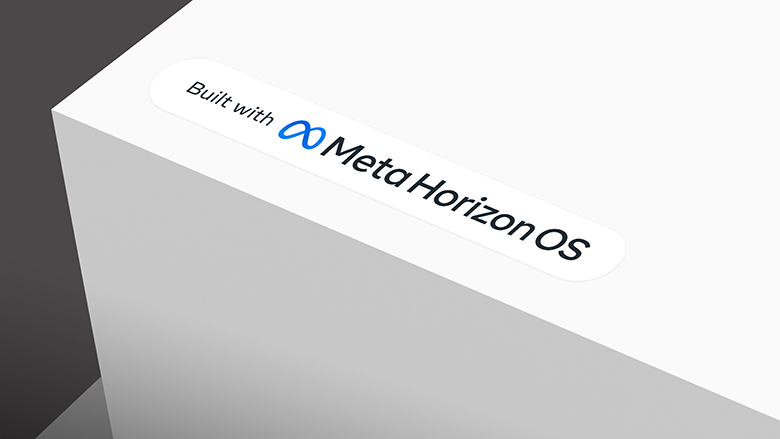Meta's Quest Against Apple

While the "AAA" branding was right there for the taking (the Anti-Apple Alliance), Meta went for the more confusing, but pleasant sounding, "Horizon" – confusing because this was already the branding for Meta's own social experience on Quest devices "Horizon Worlds" and work experiences "Horizon Workrooms". Now it's an OS and a store (which had been called the "Quest Store").
This new hardware ecosystem will run on Meta Horizon OS, the mixed reality operating system that powers our Meta Quest headsets. We chose this name to reflect our vision of a computing platform built around people and connection—and the shared social fabric that makes this possible. Meta Horizon OS combines the core technologies powering today’s mixed reality experiences with a suite of features that put social presence at the center of the platform.
Meta Horizon OS is the result of a decade of work by Meta to build a next-generation computing platform. To pioneer standalone headsets, we developed technologies like inside-out tracking, and for more natural interaction systems and social presence, we developed eye, face, hand, and body tracking. For mixed reality, we built a full stack of technologies for blending the digital and physical worlds, including high-resolution Passthrough, Scene Understanding, and Spatial Anchors. This long-term investment that began on the mobile-first foundations of the Android Open Source Project has produced a full mixed reality operating system used by millions of people.
It's an interesting call-out to Android – especially since Meta goes on to specifically and publicly make a plea for Google to join this Anti-Apple Alliance, ecosystem:
Along with a more open app store, Meta Horizon OS will continue to give people more choice in how to access apps. Because we don’t restrict users to titles from our own app store, there are multiple ways to access great content on Meta Horizon OS, including popular gaming services like Xbox Game Pass Ultimate, or through Steam Link or our Air Link system for wirelessly streaming PC software to headsets. And we encourage the Google Play 2D app store to come to Meta Horizon OS, where it can operate with the same economic model it does on other platforms.
Also, are you reading this EU? Because aside from Google, it's clearly meant for you. (And yes, seemingly good news for SideQuest, a GV portfolio company.)
Per the release, the partners in this Anti-Apple Alliance, ecosystem are ASUS, Lenovo, and Qualcomm. But not mentioned are Sony, Pico, HTC, or Samsung (which is partnering with Google and Qualcomm on their next move in the space), among others. So Meta seemingly still has its work cut out for it to be the Android play here. Or is it Microsoft? Alex Heath:
Zuckerberg has been clear that he wants his company to be a more open platform than Apple’s. Here, he’s firmly positioning Meta’s Horizon OS as the Android alternative to Apple’s Vision Pro. Given how Android was more of a reaction to the iPhone, an analogy he’d probably prefer is how Microsoft built the early PC market by licensing Windows.
The um, reality here is that it will probably play out differently than either of those two analogies. Despite Meta's best efforts and billions spent, it's still very early in the XR space. To the point where even Apple is seemingly struggling (given the price of the device, you wouldn't expect large sales, but the more troubling points are around actual usage of the Vision Pro – it's mainly anecdotal, sure, but it also passes the sniff test).
Meta has yet to share more on the business terms of its Horizon OS license, aside from that social network tie-in and requiring the use of Qualcomm chips. “You can imagine a lightweight headset that pairs with your computer on your desk to provide the best work experience at home or anywhere you go,” CEO Mark Zuckerberg said in a video announcing the news. “Or imagine one that’s fully focused on watching immersive entertainment like movies and videos with the highest resolution OLED screens out there.” Spokespeople for Lenovo, Asus, and Xbox didn’t respond to requests for comment.
May a million headsets bloom and all that. But first, it really feels like one needs to. In a major way. Meta's partnership with Microsoft for a "limited edition" Xbox headset sounds interesting, but it hasn't exactly worked for Sony with PSVR. So the real question is the early nature and lack of traction will help Meta's um, quest here to become the non-Apple OS layer in XR? Or will it hurt?
It's undoubtedly a right thing to try to do in the face of Apple's entrance. (Though I'd still focus on various Quest price points below $3,500 – which they are.) And we all know Mark Zuckerberg really, really doesn't like Apple. But they're going to need more partners to buy in, and it's unclear if those would-be partners will want to...
